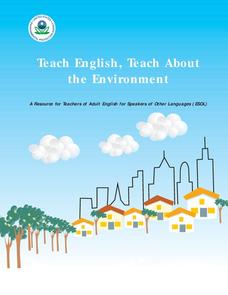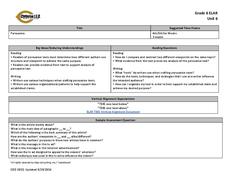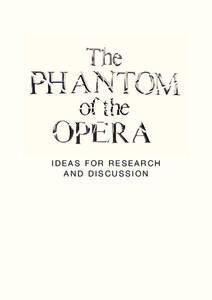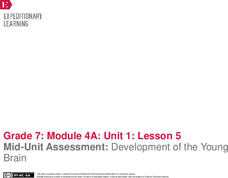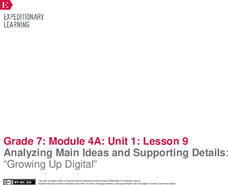US Environmental Protection Agency
Teach English, Teach About the Environment
Spread the message of recycling while teaching your English language learners new vocabulary and practicing verb tenses. Included here are four lesson plans for each level (beginning, intermediate, and advanced) as well as accompanying...
Center for Open Educational Resources and Language Learning
Reading Activity
Ready to integrate technology into your ELL instruction? Check out this reading lesson that has language learners using the Internet and apps, joining online book clubs, and creating blogs. A fine model of what can be done.
Curriculum Corner
English & Spanish School Word Cards for ELL
Transition young English language learners back to school with this set of vocabulary cards. Addressing common classroom vocabulary like teacher, backpack, and crayons, this set of cards is perfect for developing the language children...
Houghton Mifflin Harcourt
Surprise!: English Language Development Lessons (Theme 2)
Surprise! is the theme of this series of ESL lessons. Cover an array of topics such as where we live, different times of day, shapes, the city and the country, what we do for fun, jobs, and games, all while practicing how to express...
Houghton Mifflin Harcourt
Colors All Around: English Language Development Lessons (Theme 2)
A reading of the rhyme "Red Means Stop!" launches a three-week ELD/ESL study of color. The scripted daily lessons contained in the 32-page unit are packed with exercises, activities, and skill builders.
Houghton Mifflin Harcourt
Silly Stories: English Language Development Lessons (Theme 1)
ESL/ELD learners are provided extra support with the Houghton Mifflin Harcourt thematic units on silly stories by this packet of activities, exercises, and practice sets.
ReadWriteThink
Style-Shifting: Examining and Using Formal and Informal Language Styles
Your high schoolers are probably versed in two languages: formal language, and informal conversation. Help them identify the correct language style for their audience and context with a thorough lesson plan and examples of different...
Forum
A Research Toolkit of 12 Reading Strategies for the Foreign Language Classroom
Learning to read is not a simple task, but there are methods for assisting pupils as they develop literacy skills. The first four pages of this resource include information about language development and reading development, as well as...
EngageNY
Close Reading of Bullfrog at Magnolia Circle: Main Ideas about the Bullfrog
As your class reaches the end of the book Bullfrog at Magnolia Circle, the seventh lesson in this literary unit helps third graders transition from reading narrative to expository writing. Scholars develop their note-taking skills as...
EngageNY
Planning Ideas: Developing a Colonial Character Profile
The second lesson in a historical fiction series encourages pupils to develop a character profile of a colonial person using research acquired in the previous unit. Learners prepare their historical fiction narrative by responding to a...
Teach Children ESL
You're a Superhero
Engage your English language learners' vocabulary acquisition superpowers with a set of materials about superheroes. Pupils create their own superhero alter-egos by choosing from a list of superpowers, deciding on sidekicks and other...
EngageNY
Developing Reading Fluency: Beginning the End of Unit 2 Assessment
Third graders continue to develop their reading fluency in preparation for their assessment in the tenth lesson plan of this unit. Young readers are provided with a short passage on Helen Keller, which they use while working in pairs...
Project Shine
ESL Health Unit: Describing Pain and Symptoms
Designed for advanced beginning English language learners, this 21-page packet includes listening, speaking, and writing practice exercises related to the theme of visits to the doctor's office.
Cleburne Independent School District
Grade 6 English Language Arts and Readiness: Persuasive
What is the best way to compare and contrast viewpoints on the same topic? A persuasive writing unit plan addresses targeted skills, vocabulary, instructional strategies, and suggested resources that would be perfect for developing writers.
Catholic Charities
Telephone Skills
The challenge in telephone conversations is that speakers and listeners cannot rely on body language to communicate. This 31-page packet includes a curriculum guide, lesson plans, assessments, and resource lists designed to help language...
Appalachian State University
The Fault in Our Stars: A Movie Study Guide for Eighth Grade Language Arts, Social Studies, and Science
How would you spend your last days with a loved one? The movie guide for The Fault in Our Stars prompts scholars to compare important scenes from the novel to the film and contains background information about the author, guided...
EngageNY
Summarizing Complex Ideas: Comparing the Original UDHR and the "Plain Language" Version
The eighth lesson plan in this series continues the focus on vocabulary and increasing young readers' awareness of academic language. Pairs of learners participate in a short vocabulary review activity called Interactive Words in which...
CC Homestead
Summarize
Designed for third graders but appropriate for older learners as well, this packet of materials underscores the necessity of teaching kids how to summarize, how to identify main ideas and supporting details, and how to ask questions...
EngageNY
Developing Reading Fluency: Criteria for Reading Aloud
Third graders develop their reading superpowers in a lesson plan on fluency. After first listening to an audio recording or teacher read aloud, the class works together identifying criteria for fluent reading, focusing on phrasing, rate,...
EngageNY
Developing Reading Fluency: Selecting a Text and Practicing Reading Aloud
Young readers continue to strengthen their fluency skills with a text of their choosing. The teacher first engages the class with an audio recording or read-aloud of a short poem, modeling for children how to read fluently. Next it's...
Phantom of Opera
The Phantom of the Opera: Ideas for Research and Discussion
You could spend a full day discussing The Phantom of the Opera and not scratch the surface, but a set of lessons about the literary elements and themes of the musical production is a great start. Young thespians build upon the background...
English Enhanced Scope and Sequence
Differentiate between Formal and Informal Language
The Pledge of Allegiance, the Gettysburg Address, the National Anthem, and the Preamble to the Constitution all get close attention in an exercise that asks learners to rewrite these formally-worded documents into informal language....
EngageNY
Mid-Unit Assessment: Development of the Young Brain
Scholars view a video clip about adolescent brain development and work with partners to identify the main idea and supporting details. Next, as part of the mid-unit assessment, pupils watch another clip from the video and complete a main...
EngageNY
Analyzing Main Ideas and Supporting Details: “Growing Up Digital”
Young scholars continue their exploration of adolescent brain development by reading an informational text, "Growing Up Digital," by Matt Richtel. Then, with partners, they complete note-catcher worksheets to capture the article's main...


